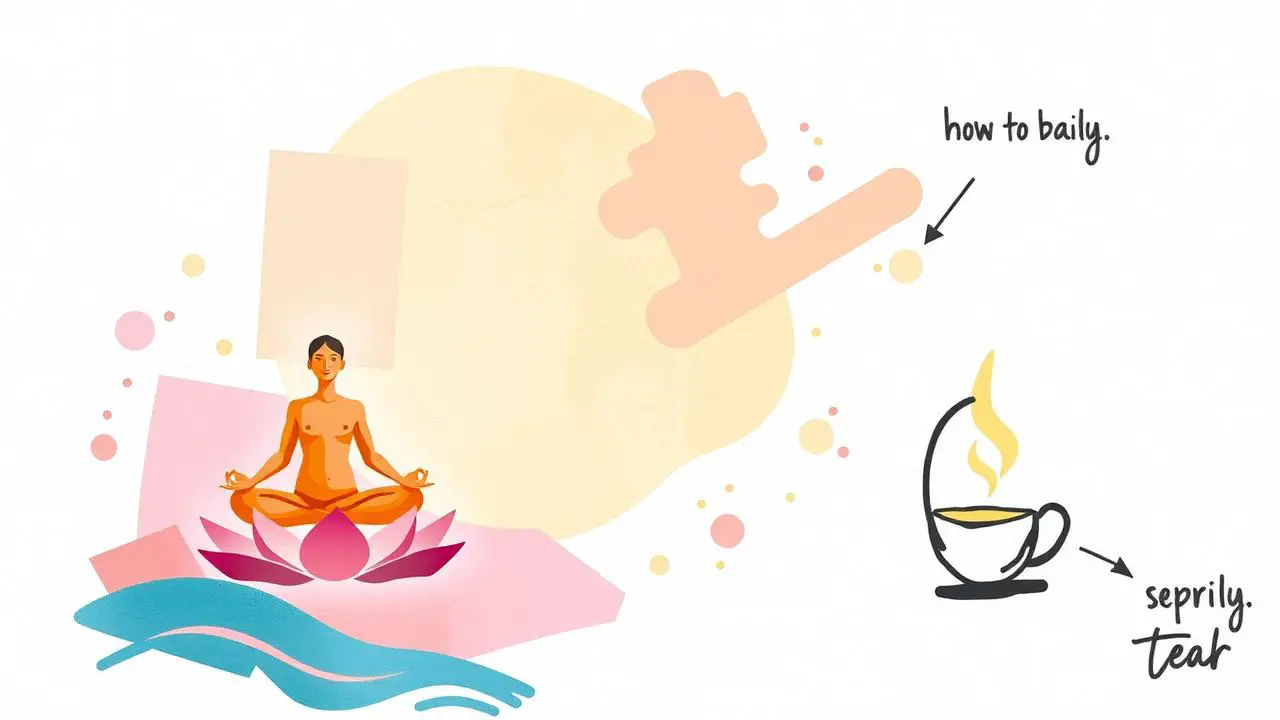Did you know nearly 80% of students report frequent stress?
You’re not alone. Meditation can be your secret weapon, transforming that anxiety into focus and well-being. By embracing this ancient practice, you’ll enhance your concentration, reduce stress, and improve memory.
It’s not just about better grades; it’s about cultivating emotional stability and fostering a mindful approach to learning. Dive in, and let’s explore how meditation can boost your academic performance and nourish your mind.
Key Takeaways
- Mindful breathing and meditation help improve concentration and focus, making it easier for students to read complex material and solve intricate problems.
- Meditation reduces stress levels and promotes calmness, enhancing resilience to academic pressures and improving sleep quality for better memory consolidation.
- Enhanced relaxation techniques such as mindful breathing, progressive muscle relaxation, and guided imagery lower stress levels and help students navigate the pressures of student life.
- Meditation enhances memory retention and recall by nurturing neural plasticity, improving concentration, and strengthening neural pathways associated with memory. It also cultivates emotional stability and resilience by enhancing self-awareness, stress management skills, and emotional regulation.
Enhancing Concentration
Every student can sharpen their focus through consistent meditation practice, enhancing your ability to concentrate during academic tasks. Mindful breathing, a core element of meditation, isn’t just a retreat from the hustle and bustle; it’s attention training in its purest form. As you sit quietly, you learn to tame the wandering mind, bringing your thoughts back to the rhythm of your breath each time they drift. This practice isn’t merely about stillness; it’s an active workout for your brain.
You’re not just a bystander in this journey; you’re the wielder of your own attention. With each session, you’re building a mental resilience that transfers to the classroom, the library, and beyond. Imagine reading through complex material or solving intricate problems with a newfound clarity and focus. That’s the power of meditation at work within you.
You’ll notice the difference, not just when you’re buried in books, but when you’re engaged in conversations, when you’re listening to lectures, and even when you’re simply enjoying a quiet moment. The beauty of mindful breathing is that it’s a portable skill; it’s your secret weapon in the battle for concentration.
Now, let’s segue into another significant advantage of meditation for students: reducing stress levels.
Reducing Stress Levels
You’re not alone if you find your stress levels peaking amidst the hustle of student life.
Meditation can be your secret weapon, not only reducing stress hormones but also paving the way for improved academic performance.
Embrace this simple practice, and you’ll discover a well of calm that enhances your ability to relax, even when exams loom large.
Stress Hormone Reduction
By engaging in regular meditation, you’ll effectively dial down your body’s stress hormone levels, fostering a more relaxed and focused mind for academic challenges. Achieving hormone balance is crucial, and meditation stimulates the relaxation response, which is your body’s way of restoring equilibrium.
Here’s how meditation makes a difference:
- Lowering Cortisol: Meditation reduces the production of cortisol, the stress hormone, promoting calmness and enabling better stress management.
- Enhancing Resilience: By building a meditation habit, you strengthen your resilience to stress, making you less reactive to academic pressures.
- Improving Sleep Quality: With reduced stress levels, you’ll enjoy more restorative sleep, crucial for memory consolidation and cognitive function.
Improved Academic Performance
Reducing stress through meditation not only enhances your well-being but also directly improves your academic performance, allowing you to absorb and retain information more effectively. When you’re less stressed, your study habits naturally improve. You’re able to concentrate better, organize your thoughts, and tackle complex concepts without the fog of anxiety clouding your mind.
This heightened focus translates to improved classroom engagement. You’ll find yourself participating more actively in discussions, asking insightful questions, and connecting with the material on a deeper level. It’s a ripple effect: as your inner peace expands, so does your ability to excel academically.
Embrace meditation as a powerful tool in your educational journey, and watch as the calm it brings helps you to thrive in your studies.
Enhanced Relaxation Techniques
During your meditation sessions, you’ll discover various relaxation techniques that can significantly lower your stress levels, helping you navigate the pressures of student life with greater ease. These practices not only soothe your mind but also instill a powerful relaxation response, a physiological process that decreases the wear and tear of stress on your body.
Here are three techniques to incorporate:
- Mindful Breathing: Focus on your breath, taking slow, deep inhales and equally measured exhales to calm your nervous system.
- Progressive Muscle Relaxation: Tense and relax each muscle group sequentially, fostering a deep sense of bodily tranquility.
- Guided Imagery: Visualize a peaceful scene, engaging all your senses to immerse yourself in a serene mental escape.
Embrace these methods to transform tension into tranquility.
Improving Memory Retention
Imagine being able to recall information with ease during exams, or remembering complex concepts without the usual struggle.
Meditation isn’t just about inner peace; it’s a proven tool to enhance your cognitive function, leading to better memory retention.
Enhanced Recall Ability
Amidst the challenges of academic life, you’ll find that regular meditation can significantly sharpen your memory recall. This isn’t just wishful thinking—it’s supported by science.
Meditation nurtures neural plasticity, essentially rewiring your brain to enhance its functioning. It also leads to sensory sharpening, allowing you to register and retain information more effectively.
Here’s how you can leverage meditation to boost your memory:
- Strengthen Neural Pathways: Regular meditation increases the density of gray matter in brain regions associated with memory.
- Reduce Stress: Lower stress levels improve concentration and memory formation.
- Enhance Focus: Meditation trains your mind to focus, which is critical for learning and recalling information.
Embrace meditation, and you’ll not only feel more at peace but also become more adept at conquering academic hurdles.
Cognitive Function Boost
Building on the foundation of enhanced recall, meditation further amplifies your cognitive prowess by improving memory retention. This isn’t just hopeful thinking; it’s rooted in the science of neural plasticity. When you meditate, you’re essentially engaging in attention training, which sharpens your mind and solidifies your learning.
Imagine your brain as malleable clay, constantly being shaped and strengthened by new experiences. Meditation fine-tunes your mental processes, carving pathways for information to flow more freely and stick around longer. As you continue this practice, you’ll find complex concepts sticking with you more easily, academic material becoming less daunting, and your overall mental storage expanding.
Embrace meditation, and watch as your brain’s capacity for holding onto knowledge truly blossoms.
Cultivating Emotional Stability
Regularly practicing meditation can help you achieve greater emotional stability amidst the pressures of student life. It’s a balance training for your emotions, teaching you to maintain composure even when academic and social stressors seem relentless. As you build emotional resilience, you’re better equipped to navigate the ups and downs with grace.
Here’s how meditation fortifies your emotional wellbeing:
- Enhanced Self-Awareness: Meditation encourages deep introspection, which allows you to recognize and understand your emotional responses. This self-awareness is a critical step in managing feelings effectively.
- Improved Stress Management: By cultivating a meditation practice, you develop the ability to remain calm in the face of stress. This helps prevent overwhelming emotions from hijacking your mental state.
- Greater Emotional Regulation: Regular meditation teaches you to observe your emotions without judgment, leading to greater mastery over them. This control is crucial during high-pressure situations like exams or presentations.
Encouraging Mindful Learning
You’ll discover that incorporating meditation into your daily routine can significantly enhance your ability to engage in mindful learning. This practice isn’t just about finding peace; it’s about cultivating a mindful presence that transforms how you absorb and process information.
When you meditate, you’re training your brain to focus and settle into a state of calm attentiveness. This skill directly translates to the classroom, where mindful presence allows you to engage deeply with your studies.
By fostering classroom mindfulness, you create an environment where learning isn’t just about memorization but about truly understanding and connecting with the material. Imagine sitting in a lecture or working on an assignment with a clear, focused mind, free from the usual distractions. Meditation helps you achieve this state, making the time you spend learning more efficient and effective.
Embrace this journey of growth with an open heart and mind. Let meditation be your ally in unlocking your full potential as a student. As you practice, you’ll find yourself not just succeeding academically, but also enjoying a sense of well-being that permeates all areas of your life.
Start today, and watch how mindful learning can change your world.
Boosting Academic Performance
Meditation sharpens your concentration, directly enhancing your academic performance. As you dive deeper into your study habits, you’ll find that the clarity and peace gained from meditation can transform your learning experience. By centering your mind, you’ll tackle academic challenges with a renewed focus and vigor.
Here’s how meditation can boost your academic success:
- Improved Focus: Regular meditation trains your brain to concentrate on the task at hand, reducing distractions and sharpening your ability to absorb information.
- Enhanced Memory: Meditation has been shown to improve memory, which is crucial when you’re trying to retain complex information and concepts for your classes.
- Greater Classroom Engagement: With a calmer mind, you’re more likely to participate actively in discussions and comprehend lectures, leading to a richer educational experience.
Imagine walking into an exam feeling centered and confident, with all the information you’ve studied neatly organized in your mind. That’s the power of meditation. It’s not just about doing better on tests; it’s about cultivating a more profound sense of well-being that permeates all aspects of your life.
Fostering Self-Compassion
Beyond improving your academic prowess, meditation also nurtures a crucial aspect of your mental health: self-compassion. It’s about treating yourself with the same kindness and understanding that you’d offer a good friend. Self-compassion involves recognizing that everyone makes mistakes and that failure is a part of the human experience. When you adopt self-kindness practices through meditation, you’re not just calming your mind; you’re also learning to be gentle with yourself.
By engaging in compassionate reflection during meditation, you allow yourself to acknowledge your feelings without harsh judgment. This process helps you understand that setbacks don’t define your worth. You start to see that you’re not alone in your struggles; everyone goes through tough times. This realization can be profoundly comforting and can empower you to face challenges with a renewed sense of resilience.
How Can Meditation Improve Student Focus and Well-being?
Meditation and brain power boost can significantly improve student focus and well-being. This ancient practice has been proven to enhance cognitive function, reduce stress, and increase self-awareness. By incorporating meditation into their daily routine, students can experience improved concentration, better emotional regulation, and overall mental resilience.
Conclusion
As you weave meditation into your daily routine, imagine it’s like planting seeds in a garden of your mind. With each session, you’re nurturing focus, tranquility, and resilience—vital blooms that color your academic and personal growth.
These practices aren’t just tasks; they’re gifts to yourself, fostering a well-being that radiates like the warm sun on your face.
Embrace this journey, for it shapes a sharper, kinder, and more harmonious you.




